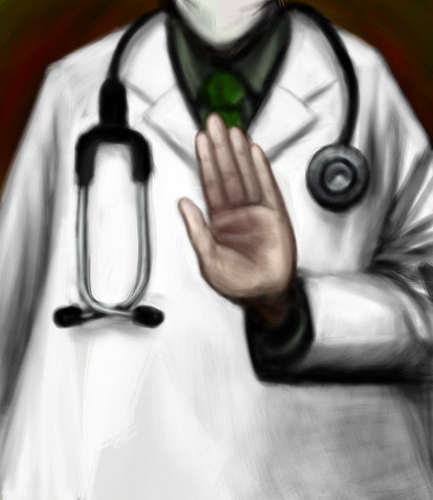Calling Dr. Google: Ensuring You Are Communicating Accurate Medical Information
The overhaul of the healthcare system has resulted in many imminent changes to industry practices; however, Americans are still left uncertain on whether the reform will tackle what’s most important to them: the costs and quality of their healthcare.
More and more, Americans are hoarding medications, skipping doctor’s visits and turning to the internet for a quick fix. Through platforms like WebMD’s symptom checker, we are able to hypothesize our diagnosis and decide which treatment options are best and most financially convenient for us.
In fact, when it comes to self-diagnosis, about one-third of Americans are going online to find out more about what might be the cause of their symptoms. According to the Pew Internet Project’s Health Online 2013 report, 35 percent of U.S. adults have gone online to figure out a medical condition, and of those people, 53 percent follow up with a doctor.
What’s interesting is that about 41 percent of those who followed up with a physician said their diagnosis was accurate, and two percent say the diagnosis was partially correct. Who needs a doctor when there’s Wikipedia, right?
Going further down the rabbit hole, women are also more likely to go online to get a diagnosis, as are:
- younger, white adults
- those living in households with income of $75,000 or more
- and persons with a college degree or advanced degrees
Fortunately for us, we are in an age where the same information that is used to train the very physicians who treat us is available online and at our fingertips. But is this safe?
According to physician blogger Dr. Kevin Pho of KevinMD.com, “There’s a lot of bad information on the web and information that can be dangerous.” Dr. Pho advises internet searchers to trust websites from a reputable medical organization or educational institution. Websites such as Mayo Clinic, or websites subject to physician contribution are preferable.
From a marketing perspective, this revolution of patient empowerment means that we must work even harder to ensure what PR professionals are communicating is not only helpful but accurate. As physicians continue to contribute their thoughts and medical expertise through websites and blogs, we must gather that information, include it in our thought processes and disseminate our messages in a way that is easily digestible to our audiences, whether it is patients or the everyday consumer. To think that the content we develop will be used by a patient to determine whether he needs to see a doctor is a big responsibility and one we should not take lightly.
Photo courtesy of truthout on Flickr.
Connect with Vicky:
Email:Vicky@blissintegrated.com
Twitter: @PRgurlVicky_
LinkedIn: Victoria Aguiar
